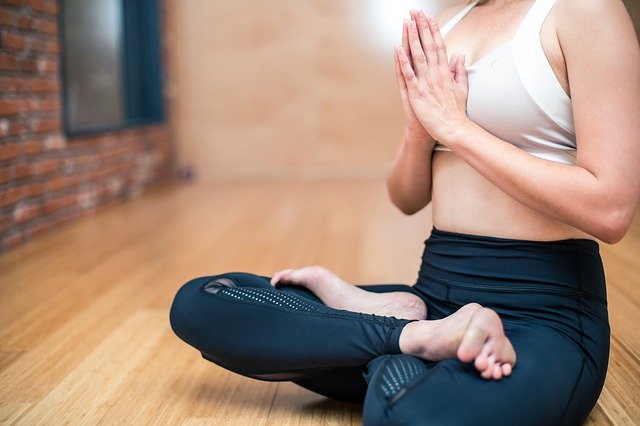We all know how important it is to take the time to unwind and relax. We don’t need a doctor or a medical journal to understand the impact that stress has on our mental and physical well-being as well as our general level of happiness. We’ve all read the articles and seen the headlines. But for many of us, learning how to relax is easier said than done.
Given the busy lives that we lead and the many tasks we juggle, we must understand how to relax mind and body but me-time often gets pushed to the lowest priority when we have a To-Do list to tick off. If it seems like you only relax when you’ve finished everything else on your list of chores, you’re not doing it right.

Learning how to relax is important. While you may know it in theory, it isn’t always as easy to put it into practice. If you commit to a routine that teaches you how to relax your mind and body, you’ll be able to lower stress levels and control your mind and mood.
Why do I have to learn how to relax? Shouldn’t it come naturally?
Relaxation is a state of being where you are at ease and able to manage stress and anxiety while coping with the routines of daily life. Between jobs, families, socializing and personal development, our days may seem like a minefield of stress triggers and endless to-do lists. But learning how to relax your mind and body is vital to your well-being.
A common misconception is that you have to wait for relaxation at the end of the day, once your tasks are done. But in reality, if you treat relaxation like a technique that you have to learn, you may find it easier to fit it into your life practically and helpfully. We enjoy learning new workouts, new languages, new recipes, and new skills, so why not try learning relaxation and reap the benefits of it?
What are the benefits of learning how to relax?
By learning how to relax your mind and body, you’ll be able to gain some incredible improvements. Reducing your stress levels can have the following impact on your physical health:
- Reduced chronic fatigue and boosted energy levels
- Lowered muscle tension and quicker recovery
- Lowered heart rate and controlled blood pressure
- Better cardiovascular health through deeper breathing
- Reduced impact of autoimmune diseases
In addition to physical benefits, relaxation is known to augment mental health. If you can learn how to relax your mind as well as your body, you’ll notice these benefits:
- Reduced stress
- Lowered risk and better management of mental health conditions
- Lowered anger levels
- Improved confidence and self-esteem to tackle problems
- Higher concentration and awareness
- Improved emotional health and mood
For many people, higher stress levels lead to muscular pain in the form of stiff backs or necks. We often clench our shoulders when we’re stressed, leading to headaches or tight jaws. Learning how to relax the mind and body can help the pain that comes from this. Mindfulness and relaxation techniques have also been found to help pain management in those with chronic pain.
Where can I learn how to relax?
There are several techniques you can learn to help you relax. On a general level, they can be classified into two broad categories: Active techniques and Passive relaxation.
Active relaxation
This is when you use a relaxation technique specifically to help you unwind. This is a conscious decision that you make and a deliberate action you take to tell your mind and body how to relax. Active relaxation does not happen by accident although when it becomes a habit, you may find yourself practising a technique without realizing it.

Active realization consists of four primary techniques.
- Imagery or visualization: Picturing a calming scenario or going to a ‘happy place’ to signal to your mind that you need to relax.
- Breathing technique: Bringing your focus to your breath, breathing slowly and deeply to change the pattern of short breaths we take when stressed.
- Progressive muscle relaxation: Focusing on different muscles in the body, and intentionally tightening and relaxing each one.
- Mindfulness: Meditating and drawing focus inwards to help the mind find space to process emotions and thoughts.
Passive relaxation
This is highly individual and personalized. It consists of doing the activities you like and enjoy that allow you to relax while engaging in them. You may not do them to relax but you’ll find yourself drawn to them when you’re finding it hard to cope with your stress. Here are some ways that you might like to try:

- Try gentle exercises such as brisk walking, yoga or wading in water
- Play with pets or try your hand at gardening
- Put off your television and sit down to smell, see and taste your meal or your coffee
- Spend some time in nature, either at the beach or in a park or forest
- Engage in brain-teasing activities such as crosswords and puzzles
- Sing or dance, with others or all by yourself
- Sit or take a walk in the sunlight
- Use sleep music to help you go to sleep
- Watch a favourite movie or read a book you love
- Get some water therapy – take a warm shower, swim or sit on the beach
- Consider an afternoon siesta
- Be creative and create something – a poem, drawing, song or a dish
Remember that one of the most effective ways to relax is to be mindful or ‘in the present’. When you are focused on an enjoyable task, you will feel relaxed and fully occupied. Doing something you love with purpose and intention will be far more effective than a session of meditation in which your mind is wandering.
The ideas above are just suggestions. Passive relaxation can be done in many ways and has endless variations, depending on what works for you. Think about the activities that make you happiest and leave you feeling light-hearted and joyful at the end, and try to add more of them to your week.
How to relax – Making a routine of relaxation
Learning how to relax your mind and body starts with you.
Understand the triggers
What makes your stress levels shoot up most? Some of these triggers can be avoided. For example, watching the news or scrolling through social media may be very stress-inducing for some but this is something you can control. It is not as easy to avoid work-related stress or people in your personal life, but you may be able to find ways to reduce those interactions or situations.
Identify the Symptoms of Stress
An important part of knowing how to relax is knowing when you need it. If you end your work day with tense shoulders and a stress headache, it may be too late for relaxation techniques. A short breathing exercise or gardening break in the middle of your day may be just the right way to keep your overall stress levels lower.
Stress can be brought on by the physical demands of your life or your job too. If you spend all day at your desk or have to be on your feet all day at work, you may be so physically tired by the evening that you find it hard to relax. Similarly, parents of very young children may find that they are exhausted by the end of the day. Taking a break to lie down, cuddle with your pet, go for a walk or do some stretches might help keep your energy levels up and help you relax.
Plan your Strategy
It is very easy to do this if you have a diary or an app in which you plot out specific times during your day when you can relax. You can plan to try multiple active and passive relaxation techniques on the same day. For example: do some short breathing exercises during your lunch break and take a walk on your way home from work.
Is it ever too late to try relaxation techniques?
If you’ve been highly stressed for extended periods, you might be vulnerable to burnout. This could result in you falling ill, losing motivation or energy for daily tasks, or feeling emotionally drained and unable to connect with anyone.
If you suspect an upcoming burnout, it is imperative to arrest it early before it snowballs into something bigger. You can only do this when you are aware of your mental health. You may want to change or exit the situation that is causing the high stress, or if that is not possible, take some time out to relax and realign your mind.

Consider these Strategies to Prevent Burnout
- Do not make life-changing decisions during this period. You may be prone to doing something you regret later.
- Work on amicable resolutions to personal conflicts with open communication. When you’re highly stressed, you may feel angry or sad and this could cause you to snap at someone or bottle up emotions.
- Be selfish and do the things that bring you joy. Taking time to work on your mental health is important and should be a priority. If you feel your boss will not understand, talk to your HR manager.
- Maintain a work-life balance by switching off after work hours and spending time with loved ones or doing things you enjoy. This prevents your stress levels from reaching peaks that can affect your health.
- Exercise regularly, eat healthy and sleep well. Taking care of your health ensures that you are physically and emotionally equipped to deal with things.
- Do not hesitate to seek the support of friends, family or even mental health professionals.
- Find the relaxation techniques that work for you and make time for them in your everyday life.
If you are already experiencing symptoms of burnout, it is a signal by your mind and body that it has been stretched beyond capacity. It is a way for your mind-body to shut down so that you can retreat and recuperate.
Symptoms of Burnout
- Utter physical and mental exhaustion that leaves you feeling chronically fatigued
- Social withdrawal especially from family and friends
- A cynical attitude about everything in life
- Delaying tasks, even the ones that are easy to perform
- Increased irritability and decreased patience
In extreme cases, burnout makes it nearly impossible for you to function in daily life. You begin to act and think differently, becoming more reactive and critical and less responsive. Knowing how to relax mind and body in this state is not easy but it is important. You could choose to take a few days for yourself in this situation or you might also want to talk to a counsellor.
Learn how to relax your mind and body
A lot of positive changes take place within you when your system is calm and relaxed. It promotes a state of balance and harmony which yields numerous mental and physical health benefits. Here are the top seven benefits of lowering your stress levels:
- Helps you deal with stress-induced headaches, insomnia and fibromyalgia
- Allows you to form stronger and more lasting memories by syncing brain function
- Boosts mood and emotional health by improving your perception of your life
- Improves the quantity and quality of sleep by inducing longer, deeper sleep
- Keeps diseases at bay by strengthening the immune system
- All the above physical improvements boost energy, decrease fatigue and allow you to tackle difficulties with ease
Making relaxation a part of your life
Remember that most relaxing techniques are portable and can be practised just about anywhere and at any time. The best active techniques to consider are mindfulness techniques such as body scanning and the practice of focused breathing. You can make use of them on your commute, when in a difficult social setting or within the comforts of your home.

To effectively learn how to relax your mind and body, you should make it a point to practice relaxation even when you feel calm and balanced so that it becomes a habit. Doing something for your mental peace 2-3 times a day makes it easier to know when you need it and how to achieve a calmer state of mind.
If nothing seems to help you relax, it is recommended that you talk to a counsellor. Being chronically stressed can be very unhealthy for you, but for many people, it feels like letting go or taking time out is not possible.
High-pressure jobs, stressful financial or personal lives and a variety of other triggers can alter your perspective on life. Try finding a personal coach or counsellor to help realign your perspective and identify a way that works for you.



